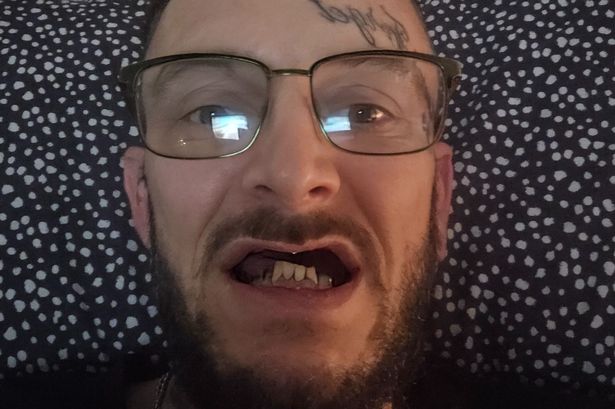The ongoing crisis within the NHS dental system in England has led to a significant increase in crowdfunding appeals as individuals seek financial assistance to cover essential dental care. According to data from GoFundMe, the number of dental-related fundraising campaigns has more than doubled, rising from 627 in 2019 to 1,297 in 2024. This alarming trend has prompted the British Dental Association (BDA) to label the situation as reminiscent of the Victorian era, where access to necessary healthcare was often dependent on charitable donations.
The NHS dental budget in England has stagnated at approximately £3 billion since 2010, despite rising costs and population growth. This funding is only sufficient to provide care for about half of the population, resulting in many dentists no longer accepting new adult NHS patients. The repercussions are dire, with some individuals resorting to extreme measures, such as self-extraction of teeth, and accruing debt to seek dental treatment abroad.
Paul Gwynne, a 40-year-old chef from Blackpool, launched a GoFundMe appeal after struggling with the loss of most of his teeth. “I can’t find an NHS dentist, I do work but don’t have thousands to spare to get new teeth. This seems to be my final hope,” he shared. His situation reflects a growing desperation among patients who find themselves unable to access necessary dental services.
In another poignant example, Lisa Cavanagh Smith from Sandbach in Cheshire, shared the story of her son, Mikey, who had to pull out one of his own teeth due to severe pain. “I really can’t describe the pain he is going through daily with his teeth,” she said. After finally securing an emergency appointment, the dentist could only offer to extract Mikey’s remaining teeth, suggesting they consider private options for replacement.
The increase in crowdfunding for dental care has been significant. The GoFundMe data indicates a 31% rise in dental crowdfunding campaigns in the first half of 2025 alone. This surge highlights the urgent need among communities struggling to access affordable dental treatment.
The BDA’s chair, Eddie Crouch, emphasized the historical implications of this crisis, stating, “Before the NHS, much of our healthcare was dependent on charities. The fundraising might be digital, but this is another step back to the Victorian era.”
In response to the crisis, the Labour Party has initiated the “Dentists for All” campaign, which aims to reform the current NHS dental contract that has been criticized for its inadequate compensation structure. Currently, dentists receive the same payment regardless of whether a patient requires three fillings or twenty, creating disincentives for treating those in greatest need.
The funding situation is stark. In 2022/23, government spending on NHS dentistry in England was merely £38 per person. This contrasts sharply with Wales, where the figure was £57, and Northern Ireland and Scotland, where it was £59 and £73, respectively. Furthermore, the UK has the lowest ratio of dentists per capita in the G7, exacerbating the access crisis.
In one particularly distressing case, Alex Boot, an event manager, started a GoFundMe campaign to help his wife, Bluebelle, a 33-year-old singer-songwriter from Somerset. She has been unable to sing due to severe dental issues that require costly procedures. Alex stated, “We’ve explored every possible route through the NHS… The total cost is £12,000, and we simply can’t cover this alone.”
As the crisis continues, the BDA has launched an online petition demanding the government reverse funding cuts that have plagued NHS dentistry for over a decade. The petition emphasizes that more than 12 million people were unable to access NHS dental care last year, with approximately 90% of dental practices no longer accepting new NHS adult patients.
The current contract system is under scrutiny, with a Parliamentary report labeling it “not fit for purpose” and calling for a change that would prioritize patient needs over arbitrary quotas. With the number of NHS dentists declining by more than 500 since the pandemic, the urgency for reform is more pressing than ever.
A spokesperson for the Department of Health and Social Care acknowledged the challenges faced by NHS dentistry, stating, “We are stopping the decay through our Plan for Change.” They claimed to have rolled out additional urgent dental appointments and are reforming the dental contract to enhance access for patients.
The overall sentiment among patients and advocates remains one of frustration and urgency for change. As the crisis deepens, individuals continue to rely on crowdfunding as a last resort, underscoring the need for systematic reform to ensure that essential dental care is accessible and sustainable for all.







